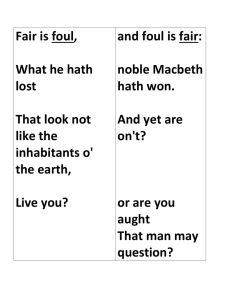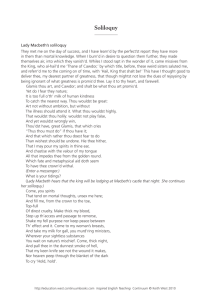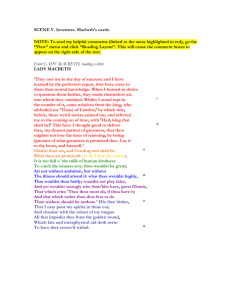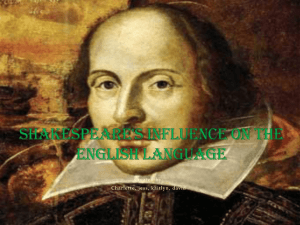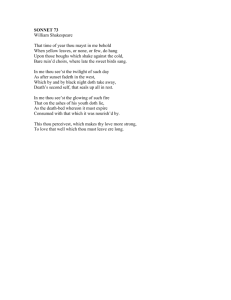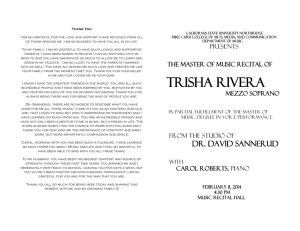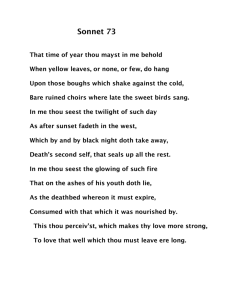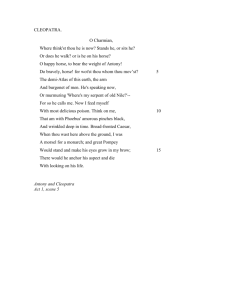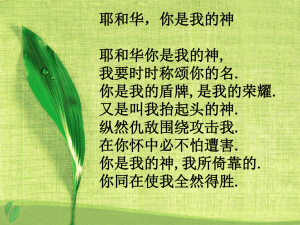Lady Macbeth`s soliloquy
advertisement
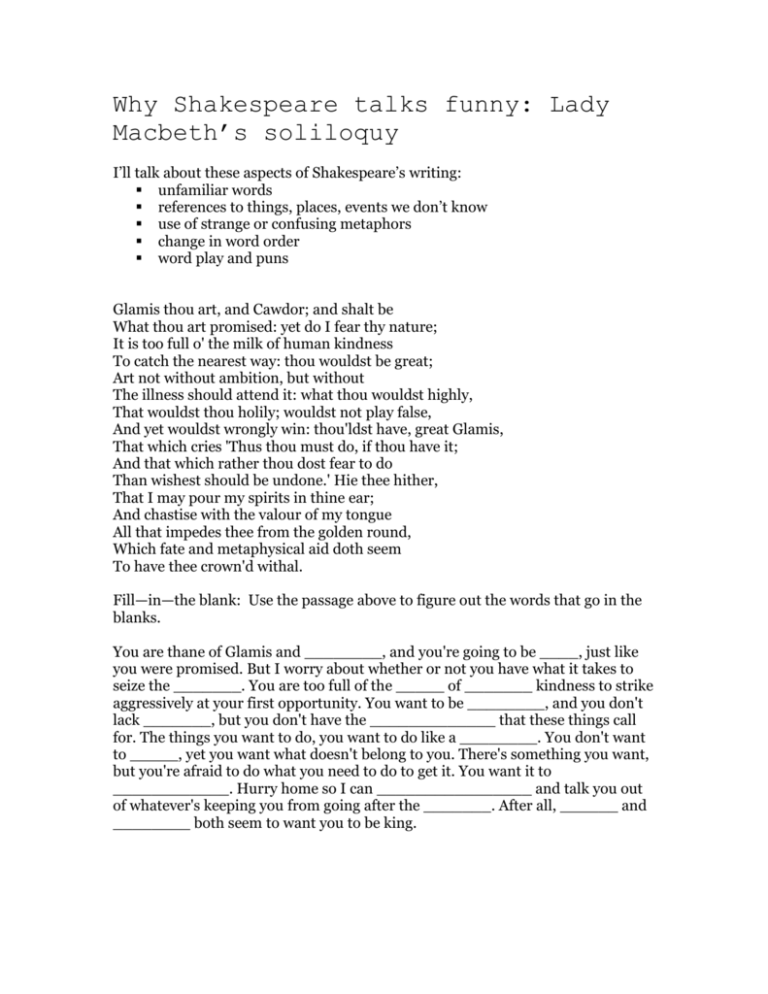
Why Shakespeare talks funny: Lady Macbeth’s soliloquy I’ll talk about these aspects of Shakespeare’s writing: unfamiliar words references to things, places, events we don’t know use of strange or confusing metaphors change in word order word play and puns Glamis thou art, and Cawdor; and shalt be What thou art promised: yet do I fear thy nature; It is too full o' the milk of human kindness To catch the nearest way: thou wouldst be great; Art not without ambition, but without The illness should attend it: what thou wouldst highly, That wouldst thou holily; wouldst not play false, And yet wouldst wrongly win: thou'ldst have, great Glamis, That which cries 'Thus thou must do, if thou have it; And that which rather thou dost fear to do Than wishest should be undone.' Hie thee hither, That I may pour my spirits in thine ear; And chastise with the valour of my tongue All that impedes thee from the golden round, Which fate and metaphysical aid doth seem To have thee crown'd withal. Fill—in—the blank: Use the passage above to figure out the words that go in the blanks. You are thane of Glamis and ________, and you're going to be ____, just like you were promised. But I worry about whether or not you have what it takes to seize the _______. You are too full of the _____ of _______ kindness to strike aggressively at your first opportunity. You want to be ________, and you don't lack _______, but you don't have the _____________ that these things call for. The things you want to do, you want to do like a ________. You don't want to _____, yet you want what doesn't belong to you. There's something you want, but you're afraid to do what you need to do to get it. You want it to ____________. Hurry home so I can ________________ and talk you out of whatever's keeping you from going after the _______. After all, ______ and ________ both seem to want you to be king.
